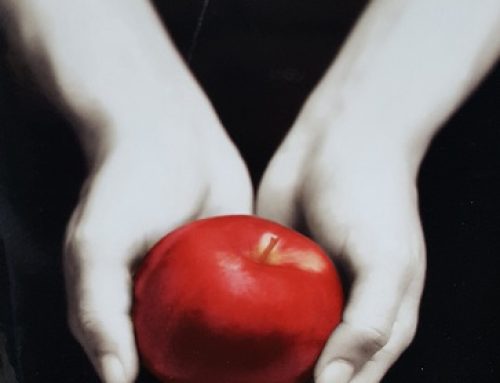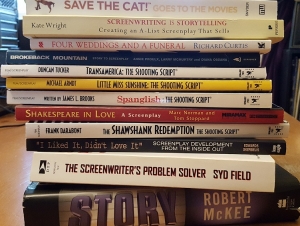How You Can Fix Plot Holes
 If anyone were to take a peek at my computer files, they’d see a graveyard of stories that were tinkered with, but never quite made it to the finish line. How can that be, you say, when I’ve published novels and completed screenplays?
If anyone were to take a peek at my computer files, they’d see a graveyard of stories that were tinkered with, but never quite made it to the finish line. How can that be, you say, when I’ve published novels and completed screenplays?
It’s not a problem with follow-through, but a problem with a stick in the plot.
It goes like this: I get a great idea for a story, but it requires a certain detail within the plot to be figured out. It’s usually a small, but significant, detail, something crucial to make the whole story work. I like to go to my characters to solve story problems, but sometimes they’re frustratingly silent. The result? I’m stuck.
The Tooth Fairy Debacle
Once I was writing a story about the Tooth Fairy, but I got stuck on what she did with all the teeth. And WHY would she collect teeth? Were they some form of currency on her planet? Was she working on a luxurious house made of teeth, and just needed a few thousand more molars to complete that hot tub? Since she wasn’t a sociopath making a “teeth suit” in my particular story, which was a comedy, by the way, I struggled. And struggled. And eventually, a movie came out called The Tooth Fairy. Aside from a scene in the fairy factory with Julie Andrews, I can’t remember them ever addressing the purpose of teeth taking. They just avoided the whole question altogether!
The question became, was the purpose of the teeth necessary at all? I still think so, because if I ask that question, I can bet a large portion of the audience might, too.
Time Travel and Other Problems
I’m working on a project right now that involves time travel. But I DON’T want anything like Back to the Future—the ticking clock (literally) and some machine that involves gigawatts. In Somewhere in Time, the protagonist surrounds himself with period clothes and simply wills himself back. But it’s not the going I’m struggling with, it’s the return. How to get my characters back? I don’t want to put them in a cave, wait for an eclipse or thunderstorm, or beam them up in a big shaft of light. . . Nope. So, I enter the stuck zone. . .
(NOTE: Since this blog has been written, I may have found a way out of the stuck zone on this script.)
How to get unstuck when you can’t fix a plot hole
What I’ve come to realize is that usually the simplest solution is the best. If you overthink, over-analyze, you could a) render yourself paralyzed to continue the story, and b) come up with the most elaborate explanation that actually detracts from your story. In my case, the point of the story isn’t the time travel itself, so why waste hours designing the most clever solution ever? Well, the reason I’m giving it so much thought is that I’m keenly aware of how time travel has been depicted so far. I want to show something fresh in everything I do—no lazy knockoffs. But getting back to basics, back to characters, is often the best place to go whenever I’m stuck.
How your theme can snap you out of writer’s block
Sometimes, if you look to your theme, it can inform your plot decisions. These, for me, are the easier troubles to have. If it can relate to theme, the answer is there. Somewhere. If hope is the guiding light of your story, break Andy out of prison. (The Shawshank Redemption) If love is a greater value than money, make your cynical businessman chase his true love down at the airport. (The Family Man) It’s the details that don’t relate to theme, the ones that seem to get us from Point A to Point B that can hold up the process and send your story to the story graveyard.
Don’t write your way out of a plot hole
Another idea: If you’re stuck in a plot hole, try putting your story aside—not in a file graveyard—but don’t look at it for a few days. While doing other activities, you may get a lightbulb moment. I’ve solved major issues while folding laundry or driving to the grocery store. Suddenly, you’ll see your story differently, and boom! I wish this has happened to me more often than it really has. But hey, it’s worth trying. Or, some time away then revisiting the story may help you see it differently. Sometimes this has worked for me.
Like most writers, I can be razor sharp with finding issues in my script—like wrong notes—and addressing them immediately. But we all have blind spots. Sometimes it’s harder to see your own work because you’ve been up close to it for so long.
If you ever need an objective pair of eyes on your script, from someone who can spot issues easily and offer solutions, check out my script doctor page .
Good luck and happy writing!
Renée Lukas is the author of four novels: The Comfortable Shoe Diaries, Hurricane Days, Southern Girl and In Her Eyes (Bella Books). She’s a screenwriter, an Academy Nicholl Quarterfinalist and a reader for BlueCat Screenwriting Competition.


